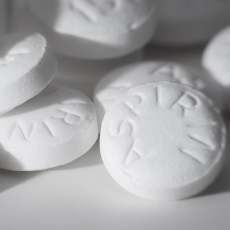
New on the MedlinePlus Blood Thinners page:
08/23/2018 02:26 PM EDT
Source: National Library of Medicine - 



Other Languages
Blood thinners are medicines that prevent blood clots from forming. They also keep existing blood clots from getting larger. Clots in your arteries, veins, and heart can cause heart attacks, strokes, and blockages. You may take a blood thinner if you have
- Certain heart or blood vessel diseases
- An abnormal heart rhythm called atrial fibrillation
- A heart valve replacement
- A risk of blood clots after surgery
- Congenital heart defects
There are two main types of blood thinners. Anticoagulants such as heparin or warfarin (also called Coumadin) slow down your body's process of making clots. Antiplatelet drugs, such as aspirin, prevent blood cells called platelets from clumping together to form a clot.
When you take a blood thinner, follow directions carefully. Blood thinners may interact with certain foods, medicines, vitamins, and alcohol. Make sure that your healthcare provider knows all of the medicines and supplements you are using. You will probably need regular blood tests to check how well your blood is clotting. It is important to make sure that you're taking enough medicine to prevent clots, but not so much that it causes bleeding.
 Pharmacogenetic Tests
Pharmacogenetic Tests  (National Library of Medicine)Also in Spanish
(National Library of Medicine)Also in Spanish
- Blood Thinners and Dental Care (American Academy of Oral Medicine)
- Blood Thinners: Can I Still Get Blood Clots? (Mayo Foundation for Medical Education and Research)Also in Spanish
- Bridging Anticoagulation: Is it Needed When Warfarin Is Interrupted Around the Time of a Surgery or Procedure? (American Heart Association)
- Heparin-Induced Thrombocytopenia (American Heart Association) - PDF
- Important Information to Know When You Are Taking: Warfarin (Coumadin) and Vitamin K
 (National Institutes of Health, Clinical Center) - PDFAlso in Spanish
(National Institutes of Health, Clinical Center) - PDFAlso in Spanish - Medication Interactions: Food, Supplements and Other Drugs (American Heart Association)
- PT and INR Test (American Association for Clinical Chemistry)
- Warfarin Side Effects: Watch for Interactions (Mayo Foundation for Medical Education and Research)
- Anticoagulation (American Heart Association)
- Antiplatelet Therapy (Texas Heart Institute)Also in Spanish
- Aspirin to Prevent a First Heart Attack or Stroke
 (National Heart, Lung, and Blood Institute)
(National Heart, Lung, and Blood Institute) - Daily Aspirin Therapy: Understand the Benefits and Risks(Mayo Foundation for Medical Education and Research)Also in Spanish
- Patient's Guide to Taking Warfarin (American Heart Association)
- Genetics Home Reference: clopidogrel resistance
 (National Library of Medicine)
(National Library of Medicine) - Genetics Home Reference: warfarin resistance
 (National Library of Medicine)
(National Library of Medicine) - Genetics Home Reference: warfarin sensitivity
 (National Library of Medicine)
(National Library of Medicine)
- Commonly Prescribed Blood Thinner Associated with Higher Risk of Post-Surgery Complications
 (National Institute of Arthritis and Musculoskeletal and Skin Diseases)
(National Institute of Arthritis and Musculoskeletal and Skin Diseases)
- ClinicalTrials.gov: Anticoagulants
 (National Institutes of Health)
(National Institutes of Health) - ClinicalTrials.gov: Heparin
 (National Institutes of Health)
(National Institutes of Health) - ClinicalTrials.gov: Platelet Aggregation Inhibitors
 (National Institutes of Health)
(National Institutes of Health) - ClinicalTrials.gov: Warfarin
 (National Institutes of Health)
(National Institutes of Health)
- Aspirin and heart disease (Medical Encyclopedia)Also in Spanish
- Clopidogrel (Plavix) (Medical Encyclopedia)Also in Spanish
- How to give a heparin shot (Medical Encyclopedia)Also in Spanish
- Taking warfarin (Coumadin) (Medical Encyclopedia)Also in Spanish


































No hay comentarios:
Publicar un comentario